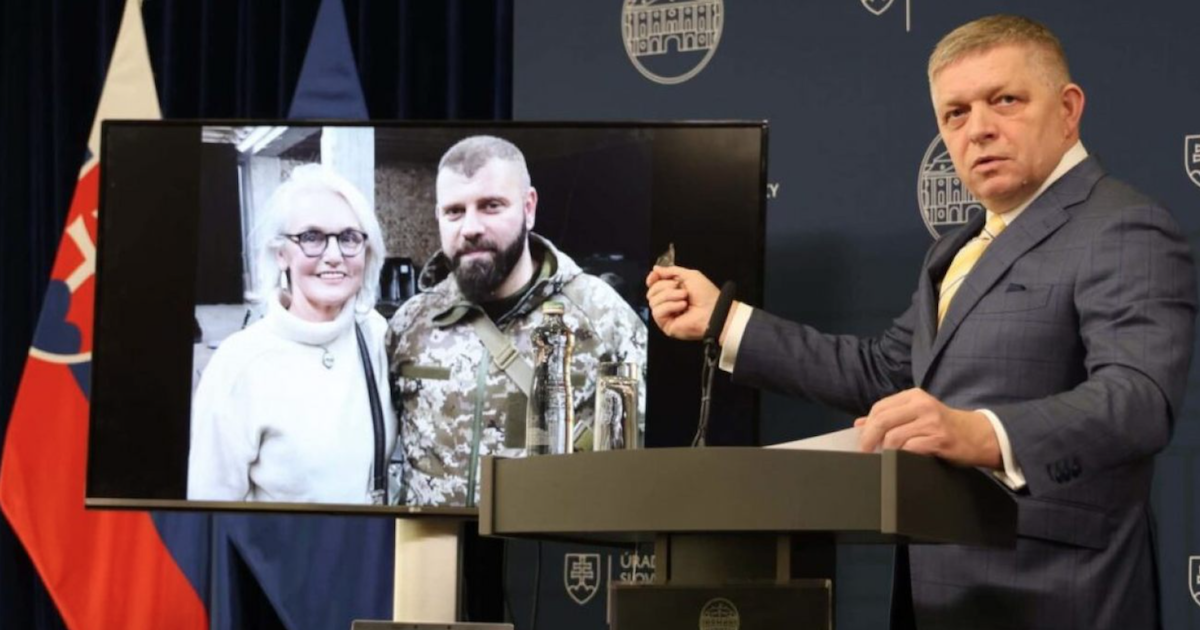Protests in Slovakia: Georgian Legion at heart of Russian disinformation campaign
Georgian Legion and protests in Slovakia
Slovakia has banned Mamuka Mamulashvili, the commander of the Georgian Legion fighting in Ukraine, from entering the country. Authorities had previously accused the volunteer unit and its leader of organizing protests and attempting a coup.
Independent Slovak outlet Dennik N examined recent claims about the Georgian Legion and concluded that they are part of a targeted Russian disinformation campaign.
Recently, Slovak Interior Minister Matúš Šutaj-Eštok announced a list of ten individuals barred
from entering Slovakia.
Shortly before this, Prime Minister Robert Fico held a press conference, reiterating his claim that the Georgian National Legion—a unit within the Ukrainian army, allegedly directed by Ukrainian military intelligence—was behind the protests.
Fico further alleged that the Legion had connections to the opposition parties Progressive Slovakia and
Democrats, both of which had openly taken part in organizing some of the demonstrations.
This is not the first time such accusations have been made. Just last week, the Georgian Legion
was accused of conspiring against Slovakia’s government. Mamuka Mamulashvili firmly denied
the allegations, stating that he has no ties to the Slovak opposition and does not follow the
country’s internal politics.
“If they are against Russia—great, I support them. But I don’t know them,” he told Dennik N in response to journalists’ requests for comment.
Journalist Tomáš Forró of Dennik N conducted a thorough analysis of recent claims about the
“Georgian Legion’s” alleged involvement in Slovak politics. His full investigation is available at
this link, but here is a concise summary.
Russian disinformation targeting the Georgian Legion began in September 2024 and has only
intensified since.
More recently, high-ranking Slovak government officials have joined the
campaign. According to journalist Tomáš Forró, this appears to be a deliberate effort to divert
attention from Slovakia’s internal challenges.
Background
The Georgian Legion, a volunteer military unit, has been fighting alongside Ukraine since 2014.
Its commander, Mamuka Mamulashvili, previously collaborated with a press officer named Reshet, who managed the Legion’s social media presence and oversaw fundraising efforts.
However, in the summer of 2024, Reshet relocated to the United States, taking control of the Legion’s accounts and financial resources with him. Soon after, he suffered a severe mental health crisis, which led to the publication of incoherent and offensive messages under the Legion’s name.
Start of disinformation campaign
On September 20, 2024, the website Ukraine Today published an article accusing Mamuka
Mamulashvili of staging his own poisoning to solicit donations and of co-founding a dubious
NGO with a convicted American fraudster.
However, Ukraine Today is not registered in any country, and its founder, Jay Beecher, had previously been expelled from the British UKIP party over financial fraud.
Despite the site’s relative obscurity, the article quickly gained traction on Twitter, spreading allegations that the Georgian Legion was not a legitimate combat unit and was involved in fraudulent fundraising.
Spreading disinformation
The disinformation campaign quickly spread among pro-Ukrainian activists, including members
of the NAFO Fellasplatform, who had previously been strong supporters of the Georgian Legion. Lacking direct insight into the situation, many began to doubt the Legion’s legitimacy and called
for greater financial transparency.
The Georgian Legion’s response
Preoccupied with frontline battles, Mamulashvili and his fighters were unable to respond swiftly
to the disinformation campaign. This communication gap further fueled skepticism and eroded
trust among their supporters.
Slovak Government involvement
By early 2025, the Slovak government, led by Robert Fico, became actively involved in the
disinformation campaign, accusing the Georgian Legion of meddling in Slovakia’s internal affairs
and plotting a coup. However, these allegations lacked any supporting evidence and, according
to the author, were primarily intended to divert attention from the country’s domestic challenges.
Diana Petriashvili, FPEE



















